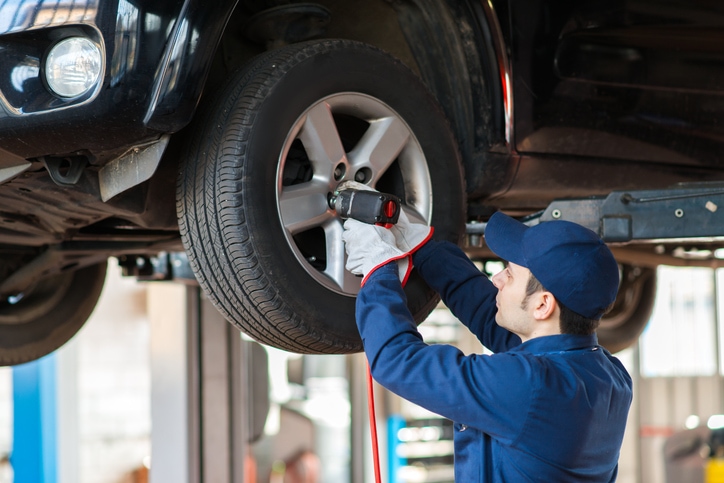All Categories
Featured
Your vehicle relies upon numerous liquids to keep its elements running smoothly and successfully. Ignoring these fluids can cause minimized efficiency, possible safety risks, and pricey repair work. Recognizing the duty of each fluid and remaining positive in maintenance guarantees your automobile runs at its best. This post explores the crucial automobile liquids and their significance to your cars and truck's health.
![]()
Why It Issues: Without appropriate lubrication, engine parts can grind against each various other, bring about considerable damage. Maintenance Tips: Check your oil level regular monthly using the dipstick and complement if needed. Replace the oil and filter according to your lorry's solution timetable, generally every 3,000 to 7,500 miles depending on the oil kind and driving conditions. 2. Coolant: Controling Engine Temperature. Coolant, also referred to as antifreeze, assists maintain your engine's temperature level within the optimal range. It stops overheating throughout warm climate and cold throughout cool conditions.
Why It Matters: Insufficient or abject coolant can cause engine overheating, which can cause extreme damage. Maintenance Tips: Examine the coolant tank routinely and try to find leakages or discoloration. Flush and re-fill coolant as advised, typically every 2 to five years. 3. Brake Fluid: Reliable Ending Power. Brake fluid is essential for your vehicle's stopping system, moving the pressure from your foot on the brake pedal to the brakes themselves. Gradually, brake fluid can soak up wetness, which lowers its effectiveness.
Why It Issues: A jeopardized braking system can severely affect your safety and security. Maintenance Tips: Inspect the brake liquid tank and make certain the degree stays within the indicated array. Adjustment the fluid every a couple of years or as needed. 4. Transmission Fluid: Smooth Gear Shifts. Transmission liquid oils the transmission parts and makes sure smooth gear modifications. It additionally avoids getting too hot by cooling down the system.
![]()
Why It Issues: Neglected transmission liquid can result in gear slippage, getting too hot, or even overall transmission failure. Maintenance Tips: Monitor the fluid's level and problem on a regular basis. Change it according to the manufacturer's suggestions, usually every 30,000 to 60,000 miles. 5. Power Steering Liquid: Uncomplicated Handling. Power steering fluid aids in exact and smooth steering. Low or polluted fluid can make steering a lot more tough, putting strain on the system.
Why It Matters: Poor steering responsiveness can jeopardize your control over the lorry. Maintenance Tips: Frequently check the liquid level and color, and top it off as needed. Be attentive to leakages or unusual steering noises. 6. Windshield Washing Machine Liquid: Clear Presence. While it does not effect performance, windscreen washing machine liquid is vital for keeping visibility, specifically in negative problems.
![]()
Why It Matters: A clean windscreen ensures you can see clearly, reducing the danger of crashes. Upkeep Tips: Replenish the washing machine liquid reservoir frequently and use a formula matched to your environment to stop freezing or streaking. Why Normal Liquid Upkeep is Vital. Optimal Performance: Proper liquid degrees and high quality make sure all systems run efficiently. Safety Guarantee: Brake and power steering fluids directly affect your capability to manage the car. Cost Cost savings: Preventative maintenance avoids expensive repair work by capturing possible problems early. Longevity: Fluids in great condition assistance prolong the life of important parts, including the engine and transmission. Quick Tips for Effective Liquid Maintenance. Follow the Guidebook: Refer to your lorry's owner guidebook for certain upkeep periods. Look Out for Leaks: Pools under your car can indicate fluid leakages that need immediate focus. Use Recommended Products: Adhere to liquids suggested by your car manufacturer to stay clear of compatibility problems. Focus On Warning Indications: Control panel alerts or uncommon performance can signal liquid issues. Conclusion. Maintaining your automobile's liquids is one of the simplest ways to keep it running effectively and securely. Whether it's engine oil, coolant, or brake liquid, each plays a vital role in your car's overall health.

- Engine Oil: The Lifeblood of Your Engine. Engine oil plays a crucial function in lubricating the engine's relocating parts, lowering rubbing, and safeguarding versus wear and getting too hot. Over time, oil becomes or deteriorates infected with particles, which can endanger its efficiency.
Why It Issues: Without appropriate lubrication, engine parts can grind against each various other, bring about considerable damage. Maintenance Tips: Check your oil level regular monthly using the dipstick and complement if needed. Replace the oil and filter according to your lorry's solution timetable, generally every 3,000 to 7,500 miles depending on the oil kind and driving conditions. 2. Coolant: Controling Engine Temperature. Coolant, also referred to as antifreeze, assists maintain your engine's temperature level within the optimal range. It stops overheating throughout warm climate and cold throughout cool conditions.
Why It Matters: Insufficient or abject coolant can cause engine overheating, which can cause extreme damage. Maintenance Tips: Examine the coolant tank routinely and try to find leakages or discoloration. Flush and re-fill coolant as advised, typically every 2 to five years. 3. Brake Fluid: Reliable Ending Power. Brake fluid is essential for your vehicle's stopping system, moving the pressure from your foot on the brake pedal to the brakes themselves. Gradually, brake fluid can soak up wetness, which lowers its effectiveness.
Why It Issues: A jeopardized braking system can severely affect your safety and security. Maintenance Tips: Inspect the brake liquid tank and make certain the degree stays within the indicated array. Adjustment the fluid every a couple of years or as needed. 4. Transmission Fluid: Smooth Gear Shifts. Transmission liquid oils the transmission parts and makes sure smooth gear modifications. It additionally avoids getting too hot by cooling down the system.

Why It Issues: Neglected transmission liquid can result in gear slippage, getting too hot, or even overall transmission failure. Maintenance Tips: Monitor the fluid's level and problem on a regular basis. Change it according to the manufacturer's suggestions, usually every 30,000 to 60,000 miles. 5. Power Steering Liquid: Uncomplicated Handling. Power steering fluid aids in exact and smooth steering. Low or polluted fluid can make steering a lot more tough, putting strain on the system.
Why It Matters: Poor steering responsiveness can jeopardize your control over the lorry. Maintenance Tips: Frequently check the liquid level and color, and top it off as needed. Be attentive to leakages or unusual steering noises. 6. Windshield Washing Machine Liquid: Clear Presence. While it does not effect performance, windscreen washing machine liquid is vital for keeping visibility, specifically in negative problems.

Why It Matters: A clean windscreen ensures you can see clearly, reducing the danger of crashes. Upkeep Tips: Replenish the washing machine liquid reservoir frequently and use a formula matched to your environment to stop freezing or streaking. Why Normal Liquid Upkeep is Vital. Optimal Performance: Proper liquid degrees and high quality make sure all systems run efficiently. Safety Guarantee: Brake and power steering fluids directly affect your capability to manage the car. Cost Cost savings: Preventative maintenance avoids expensive repair work by capturing possible problems early. Longevity: Fluids in great condition assistance prolong the life of important parts, including the engine and transmission. Quick Tips for Effective Liquid Maintenance. Follow the Guidebook: Refer to your lorry's owner guidebook for certain upkeep periods. Look Out for Leaks: Pools under your car can indicate fluid leakages that need immediate focus. Use Recommended Products: Adhere to liquids suggested by your car manufacturer to stay clear of compatibility problems. Focus On Warning Indications: Control panel alerts or uncommon performance can signal liquid issues. Conclusion. Maintaining your automobile's liquids is one of the simplest ways to keep it running effectively and securely. Whether it's engine oil, coolant, or brake liquid, each plays a vital role in your car's overall health.
Latest Posts
Learn About Best Car Repair Services offered by Montclare Auto Repair – Drive with Confidence
Published en
1 min read
The Benefits of Regular Auto Maintenance at Montclare Auto Repair Keeps Your Wallet Happy
Published en
1 min read
Selecting the Right Roof Color: Effect On Energy Performance
Published en
1 min read
More
Latest Posts
Learn About Best Car Repair Services offered by Montclare Auto Repair – Drive with Confidence
Published May 29, 25
1 min read
The Benefits of Regular Auto Maintenance at Montclare Auto Repair Keeps Your Wallet Happy
Published May 27, 25
1 min read
Selecting the Right Roof Color: Effect On Energy Performance
Published May 22, 25
1 min read